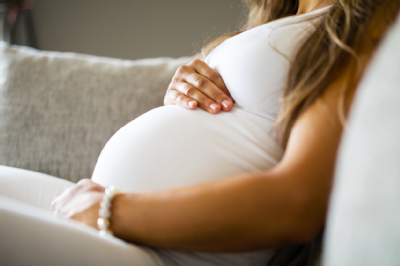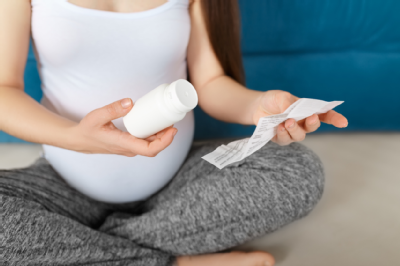Gluten free when pregnant
It’s important for pregnant women with coeliac disease to stick to a healthy, balanced, gluten free diet to protect both you and your baby.
 It is also important that people with coeliac disease are followed up regularly, particularly at times of stress, such as pregnancy.
It is also important that people with coeliac disease are followed up regularly, particularly at times of stress, such as pregnancy.
There is an increased risk of reproductive problems in women with untreated coeliac disease. So if a gluten free diet isn’t followed, it can potentially lead to your baby having a low birth weight or, an increased risk of premature birth.
Depending on your particular needs and diet, supplementation with calcium, iron, and vitamin B12 might be needed. It’s best to get vitamins and minerals from the food you eat, but when you are pregnant you may need to take some supplements as well.
If you have any concerns, try and see a dietitian, who can assess your diet and make sure you are getting enough nutrients for you and your baby.
Folic acid
Folic acid supplements are recommended for women during the three months before conception and the first 12 weeks of pregnancy. The recommendation for the general population is 400 micrograms folic acid, but our Health Advisory Council recommend a higher level of 5 milligrams folic acid for women with coeliac disease as a precaution in case of ongoing malabsorption.
Folic acid is important during pregnancy to protect against neural tube defects (NTDs) such as spina bifida. There is no evidence to suggest that people with coeliac disease are more at risk of NTDs and the recommendation for a higher folic acid level during pregnancy is precautionary in case you have damage in the gut which could reduce absorption of vitamins such as folic acid.
 The higher dose of 5mg a day will not be available over the counter and would need to be prescribed by your GP. We would therefore recommend contacting your GP to discuss this guidance and your prescription of folic acid.
The higher dose of 5mg a day will not be available over the counter and would need to be prescribed by your GP. We would therefore recommend contacting your GP to discuss this guidance and your prescription of folic acid.
It’s possible that folic acid supplementation may mask the symptoms of vitamin B12 deficiency, which is more common in people with coeliac disease. It’s important that you stay in regular contact with your healthcare team during your pregnancy so they can monitor you.
As well as a supplement, you should choose foods high in folate (the natural form of folic acid) such as green leafy vegetables.
It is also recommended that you take 10 micrograms of vitamin D each day throughout your pregnancy.